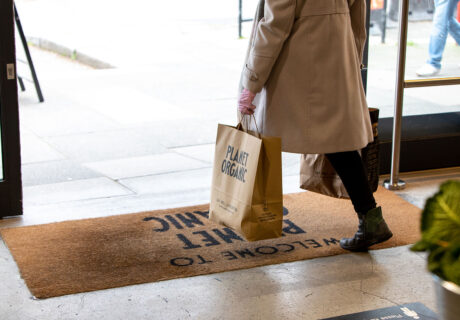Following Chancellor Jeremy Hunt’s delivery of the Autumn Statement, three organizations from different corners of the industry have offered their feedback on the Budget.
Health Stores UK welcomes the rates relief measures put in place by Hunt, but remains of the view that high inflation poses a ‘grave threat’ to smaller, independent retailers. The Association would like to see the Government ‘step up efforts to curb inflation and restore consumer confidence’.
Len Glenville, co-chair, comments: “Whilst we are happy that the new Prime Minister and Chancellor have stuck to their pledge to help with business rates, small retailers, who have worked incredibly hard over the past few years to support their customers, need more certainty around consumer confidence and the Energy Price Guarantee for businesses.
“Whilst we welcome the National Living Wage increase from next year, small retailers will find it incredibly difficult to absorb that extra cost, along with record energy prices – even with assistance on business rates. The Chancellor must do everything in his power to reduce inflation, which will in turn increase consumer confidence and lower prices.”
Speaking on behalf of the Federation of Small Businesses (FSB) national chair Martin McTague said the Budget was ‘high on stealth-creation and low on wealth-creation’.
“While tackling inflation is essential, so are measures to create conditions for prosperity [and] growth. [The Budget] is a missed opportunity to avoid further economic slowdown.
“Small businesses, which account for more than 16 million jobs in the UK, were already facing an acute cost of doing business crisis through soaring costs, falling revenues, shrinking availability of affordable finance, and a rise in invoices being paid late.
“On top of all that, they now face even higher taxes, cuts to innovation, and a recipe for a longer and deeper recession.
“Freezing the threshold for employer National Insurance at a time of such high inflation is a stealthy hike in the jobs tax, just as recessionary pressures threaten an increase in unemployment. Alongside the understandable rise in the Living Wage, this Budget will ramp up the costs of employment without offsetting that with measures to reduce other business costs. The few saving graces here are the retention of the Employment Allowance at its current level, which was hard fought for by FSB, and the continuation of the lower National Insurance rate for the self-employed and employees.
This doom loop makes a mockery of plans for growth
“Gutting the R&D tax credit scheme will crush innovation and growth, resulting in tens of thousands fewer R&D intensive small businesses. This doom loop makes a mockery of plans for growth. The Chancellor has stewardship responsibilities to the next generation and he has failed with this move to kill R&D.
“On Business Rates, it is welcome news that transitional relief will be changed alongside next year’s revaluation and with an inflationary freeze – avoiding the threat of a huge 10.1% increase in bills. The positive effect will be for those whose valuations go down, who as a result of the change will be paying a fairer level of rates from year one. Alongside significant expansion of relief for small firms in retail, hospitality and leisure, this is a positive change. As the Chancellor mentioned, FSB has been calling for these changes and it is pleasing to see them being taken onboard.
“Stealthily freezing the VAT threshold at a time of sky-high inflation will both drag more struggling small firms into scope for the tax, while disincentivizing others from growing. FSB’s research shows one-in-four (24%) of small firms and the self-employed are held back by the VAT threshold.
“It is welcome that the energy support package for small firms will remain in place until April, helping them through a very tough winter ahead. However, going forward, continued support should not be viewed through the narrow lens of specific sectors, but rather based upon the size of a business.
“The Chancellor may consider that [the] Statement has steadied the economic ship after recent turbulence. But it is now time to raise the anchor, re-start the engines, and set a course towards economic recovery, promoting enterprise and innovation, and future prosperity. Whether that direction is set in the coming months is a decision which will be make or break for many small businesses.”
From Bio-D, managing director Lloyd Atkin adds: “It’s encouraging to hear that the UK Government is standing by its commitment to reduce the nation’s carbon emissions by 68% by 2030.
“However, with the current cost of living crisis and inflation rates companies are starting to compromise on sustainability initiatives in an effort to save money.
“With sustainability at the core of Bio-D, we are working hard to navigate the current economic climate, whilst continuing to adhere to our strict environmental ethos to create powerful cleaning products without compromising the planet. We hope that the market gets back on track as soon as possible so that companies don’t have to make these difficult choices, working together to secure net zero status by 2050.”





